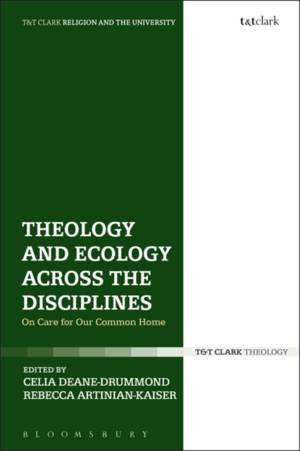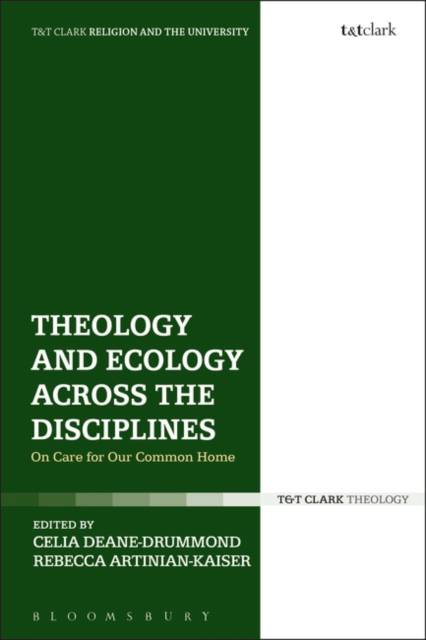
Bedankt voor het vertrouwen het afgelopen jaar! Om jou te bedanken bieden we GRATIS verzending (in België) aan op alles gedurende de hele maand januari.
- Afhalen na 1 uur in een winkel met voorraad
- In januari gratis thuislevering in België
- Ruim aanbod met 7 miljoen producten
Bedankt voor het vertrouwen het afgelopen jaar! Om jou te bedanken bieden we GRATIS verzending (in België) aan op alles gedurende de hele maand januari.
- Afhalen na 1 uur in een winkel met voorraad
- In januari gratis thuislevering in België
- Ruim aanbod met 7 miljoen producten
Zoeken
Theology and Ecology Across the Disciplines
On Care for Our Common Home
€ 296,95
+ 593 punten
Omschrijving
The threat of ecological collapse is increasingly becoming a reality for the world's populations, both human and nonhuman; addressing this global challenge requires enormous cultural creativity and demands a diversity of perspectives, especially from the humanities. Theology and Ecology Across the Disciplines draws from a variety of academic disciplines and positions in order to explore the role and nature of environmental responsibility, especially where such themes intersect with religious or theological viewpoints.
Covering disciplines such as history, philosophy, literature, politics, peace studies, economics, women's studies, and the ecological sciences as well as systematic and moral theology, the contributors emphasize how these positions have begun to develop distinct perspectives on urgent ecological issues, as well as pointing toward specific practices at the local and international level. This volume provides a multidisciplinary point of departure for urgent conversations on environmental responsibility that resist simplistic solutions. Rather, the contributors highlight the complex nature of modern ecology, and suggest creative ways forward in the situation of an apparently intractable global problem. The ebook editions of this book are available open access under a CC BY-NC-ND 4.0 licence on bloomsburycollection.com. Open access was funded by Knowledge Unlatched.Specificaties
Betrokkenen
- Uitgeverij:
Inhoud
- Aantal bladzijden:
- 272
- Taal:
- Engels
- Reeks:
Eigenschappen
- Productcode (EAN):
- 9780567672735
- Verschijningsdatum:
- 20/09/2018
- Uitvoering:
- Hardcover
- Formaat:
- Genaaid
- Afmetingen:
- 163 mm x 236 mm
- Gewicht:
- 566 g

Alleen bij Standaard Boekhandel
+ 593 punten op je klantenkaart van Standaard Boekhandel
Beoordelingen
We publiceren alleen reviews die voldoen aan de voorwaarden voor reviews. Bekijk onze voorwaarden voor reviews.








